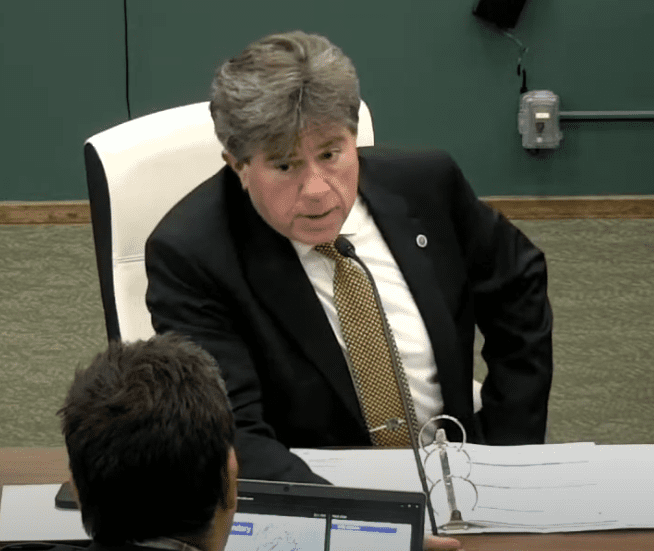City Council gets update on grant-writing efforts, and changes that could benefit city on that front
An informational item on the Urban Growth Boundary ordinance that had the Solvang City Council going over their options on Monday, March 10, in a discussion that touched on affordable housing, water storage, and traffic issues in times of potential disaster.
Planning Director Rafael Castillo delivered the report to the council. He explained the ordinance came about starting on June 8, 2020, when a group known as Save Solvang (SOS) presented to the City Council a petition to bring to the voters an “Urban Growth Boundary Initiative”, as it had collected enough signatures (499) from voters based on the 2016 General Election, or just under 10% of the registered voters. The City Council was given three options:
- Adopt the initiative as an ordinance, without alteration.
- Submit the initiative without alteration to the voters of the City of Solvang
- Order a report prepared pursuant to Section 9212 of the California Code of Elections concerning certain special effects of the proposed initiative.
In 2020, the city chose the second option, to submit without alteration to the voters.
Takeaways from the ordinance given by Castillo was that the city can annex land from the UGB without a public vote if certain findings are met, which could affect housing. Water security could also be affected for the same reason. Castillo said the ordinance has no provisions for alternate or emergency routes out of town, if, say, a fire were to break out.
When the subject was open to questions, Mayor David Brown mentioned he liked the idea of water independence, and a repeal could create that.
“We have a 2.4-mile site we can draw from,” he said. “Mandates from state can affect that. Maybe there’s some way to have previous UGB repealed and direct staft to come up with something else.”
Councilmember Claudia Orona then said “first, we have to figure out what we can and can’t do.”
However, Councilmember Elizabeth Orona allowed how the repeal would give the city a little more control.
“We were pressured into affordable housing,” she said. “Here’s an opportunity to plan it. It gives us a little more control to get ahead of state mandates.”
Castillo didn’t disagree, but said that planning decisions would take a long time if that’s the case.
While he didn’t make a case for repeal, City Manager Randy Murphy said that while the UGB may have been a “sacred cow” for previous city officials, with recent development conflicts, “it needs to be addressed. An argument can be madeto dojust what you need now, and leave it for the next cycle.”
In public comment, Dennis Beebe warned against the repeal idea.
“Repealing is a pretty big change; I don’t see how that’s an option,” he said, then wondered if city was trying to make a decision around the will of the voters. “I’d like to know where the public in involved with planning for the future.”
Ultimately, the council directed staff to study the possibility of amending or repealing the UGW.
In other March 10 business:
Tereza Sarkisyan of California Consulting presented a report on the effort of the firm (which recently had its contract renewed) in getting grants. While California Consulting has not yet gotten a grant for the city, she said things could improve because the current federal administration is removing the preference for disadvantaged communities, which made it more difficult for a town like Solvang to get that money.
The council renewed the landscape maintenance contract for the Solvang (Skytt) Mesa Lighting, Landscape and Maintenance District (LLMD), which expired at the end of 2024 and was extended through the end of March 2025 in order to solicit proposals from qualified firms. After the bids were reviewed, it was determined that Skytt was still the best for the city.
The City Council will next meet Monday, March 24, at 5:30 p.m.






